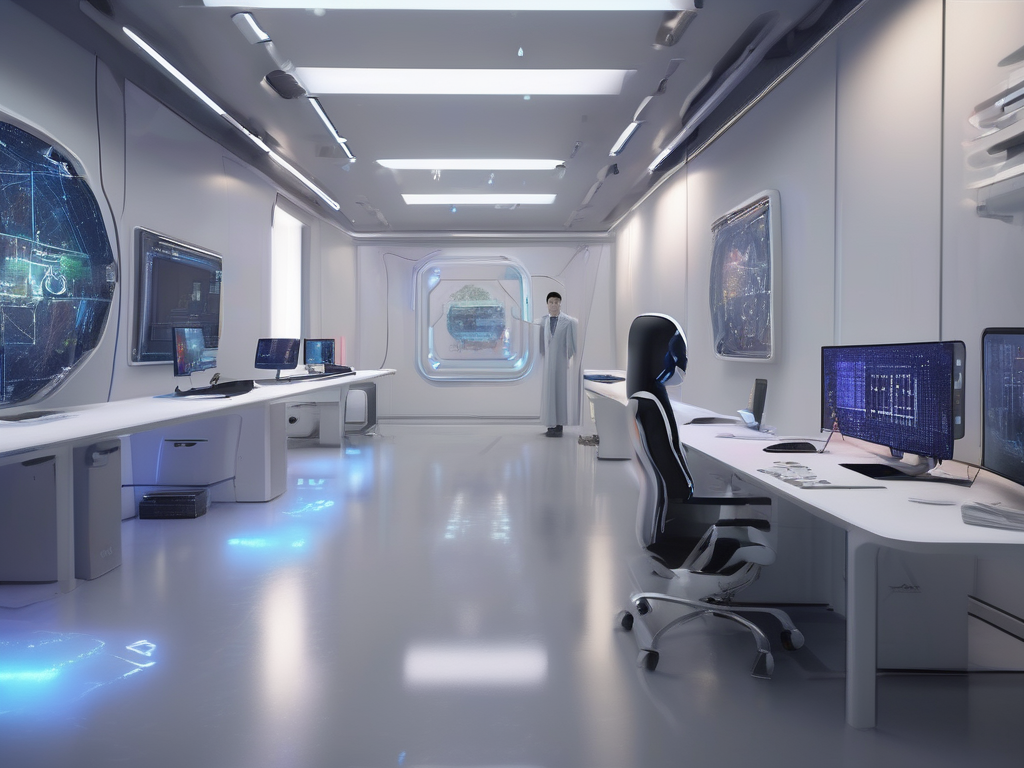Chinese startup Monica has created a significant stir in the AI community with the March 6-7, 2025 unveiling of Manus, which they claim is the world's first general autonomous AI agent. This system represents a fundamental shift from AI assistants to truly independent artificial intelligence capable of autonomous decision-making and task execution.
The Autonomous AI Breakthrough
Manus differs fundamentally from existing AI systems like ChatGPT or Google's Gemini, which require human prompts to function. Instead, Manus operates independently, initiating tasks, assessing situations, and dynamically adjusting its approach without waiting for instructions.
Chinese state broadcaster CCTV described it as a system that "doesn't just think, it delivers results," capable of autonomously and independently thinking, planning, and executing complex tasks across various domains.
Technical Architecture
Unlike traditional AI models that rely on single neural networks, Manus employs a sophisticated multi-agent architecture. A central "executor" agent coordinates with specialized sub-agents including planners and knowledge agents to break down and complete complex workflows.
Key technical features include:
Multi-Agent Coordination: Specialized sub-agents handle different aspects of complex tasks Cloud-Based Operation: Runs asynchronously in virtual compute environments Tool Integration: Works with 29 tools and open-source software packages Web Interaction: Capable of browsing, API interaction, and script execution Independent Development: Can create and deploy software without human intervention
Real-World Capabilities
Early demonstrations showcase Manus's remarkable autonomous capabilities:
Resume Analysis: Given a zip file of resumes, Manus reads through each one, extracts relevant skills, cross-references with job market trends, and presents optimized hiring decisions with generated Excel spreadsheets
Website Development: Creates complete functional websites from minimal prompts, including troubleshooting hosting issues independently
Research and Analysis: Conducts comprehensive analysis including trip planning and stock analysis with minimal initial guidance
Adaptive Problem Solving: Handles unforeseen obstacles and adjusts strategies in real-time
Underlying Technology
Manus is built on top of Anthropic's Claude 3.5 Sonnet model and refined versions of Alibaba's Qwen models. However, it's not simply a model but an assemblage of models working together in a coordinated system.
The system's cloud-based architecture allows it to continue working in the background after users shut down their computers, notifying them upon task completion—a significant advancement over browser-based AI agents.
Performance Validation
Monica claims that in GAIA, a benchmark for evaluating general AI assistants, Manus achieved state-of-the-art results across all difficulty levels, surpassing OpenAI's models of the same level.
Early user testing demonstrates:
End-to-End Execution: Complete task fulfillment without human intervention Cross-Domain Versatility: Effective performance across diverse application areas Error Correction: Self-troubleshooting and problem resolution capabilities Quality Output: Professional-grade results across various task types
Industry Impact
The announcement has prompted comparisons to the DeepSeek moment, when Chinese AI capabilities surprised the global technology community. Manus represents a different type of breakthrough—not just improved language modeling, but true autonomous operation.
Silicon Valley leaders have quietly acknowledged that China's aggressive push into autonomous systems could provide first-mover advantages in critical sectors, particularly where AI systems must operate independently of human oversight.
Market Response
Access to Manus is currently restricted, requiring invitation codes. The scarcity has driven secondary market activity, with codes selling for 999 yuan (RM606) to 50,000 yuan (RM30,500) on domestic marketplaces.
This demand indicates significant market interest in autonomous AI capabilities, suggesting potential widespread adoption once the system becomes more broadly available.
Competitive Implications
Manus challenges assumptions about AI development leadership. While Western companies focused on improving language models, Monica developed a fundamentally different approach to AI autonomy.
The system's capabilities raise questions about whether other companies can quickly develop comparable autonomous agents or whether Monica has established a significant technological lead.
Autonomous vs. Assisted AI
The distinction between Manus and existing AI systems is fundamental:
Traditional AI: Responds to human prompts and requires ongoing guidance Manus: Initiates tasks independently and operates without continuous human oversight Traditional AI: Assists human decision-making Manus: Makes decisions autonomously and implements solutions
Development Team
Monica's founding team includes Xiao Hong, a serial entrepreneur and 2015 graduate of Huazhong University of Science and Technology. The company's ability to develop such advanced autonomous capabilities represents significant Chinese progress in AI research and development.
Real-World Applications
Potential applications span numerous industries:
Business Operations: Autonomous market analysis, competitor research, and strategic planning Data Processing: Independent analysis of large datasets with actionable insights Content Creation: Autonomous research, writing, and publication workflows Software Development: Independent coding, testing, and deployment processes
Challenges and Limitations
Early users report some issues suggesting the system requires refinement before general availability. Common challenges include:
Task Complexity: Some workflows still exceed current capabilities Error Handling: Occasional difficulties with unexpected scenarios Integration: Compatibility issues with certain software environments Performance Consistency: Variable results across different task types
Future Development
Monica is working to address current limitations and expand Manus's capabilities:
Reliability Improvement: Enhanced error handling and fault tolerance Capability Expansion: Support for additional task types and industries Integration Enhancement: Better compatibility with existing software ecosystems Performance Optimization: Improved speed and accuracy across all functions
Ethical and Safety Considerations
Autonomous AI systems raise important questions:
Decision Authority: Determining appropriate levels of AI autonomy in different contexts Accountability: Establishing responsibility for autonomous AI decisions and actions Transparency: Ensuring understanding of AI decision-making processes Control Mechanisms: Maintaining human oversight capabilities when needed
Global AI Landscape
Manus's emergence highlights the increasingly competitive nature of AI development. Chinese companies are demonstrating capabilities that rival or exceed Western alternatives, particularly in areas like autonomous operation and practical application deployment.
This development suggests that AI leadership may be more distributed globally than previously assumed, with different regions excelling in different aspects of artificial intelligence development.
The success of Manus could accelerate development of similar autonomous systems worldwide, potentially leading to rapid advancement in AI autonomy capabilities across the technology industry.
Manus represents a significant milestone in AI development, moving beyond assisted intelligence toward truly autonomous artificial intelligence capable of independent operation across diverse domains.
Ready to implement these insights?
Let's discuss how these strategies can be applied to your specific business challenges.
You might also like
More insights from AI Technology
